
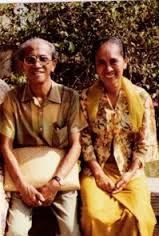 Indonesia has held a special place in my heart for many years. It’s the country of my mentor, the late Ibu Gedong Bagus Oka, who taught me so much about women’s involvement in peace processes and about the theory and practice of conflict resolution. As a member of Indonesia’s parliament and the founder of a Gandhi ashram in Candidasa and a civic world leader engaged in interfaith dialogue at the UN, she showed that you can inhabit many worlds to lead social change.
Indonesia has held a special place in my heart for many years. It’s the country of my mentor, the late Ibu Gedong Bagus Oka, who taught me so much about women’s involvement in peace processes and about the theory and practice of conflict resolution. As a member of Indonesia’s parliament and the founder of a Gandhi ashram in Candidasa and a civic world leader engaged in interfaith dialogue at the UN, she showed that you can inhabit many worlds to lead social change.
Indonesia is one of my last stops on my first tour of visiting The Asia Foundation’s country offices. My heart is drawn to the work of our Jakarta office and our local partners, and the phenomenal leadership of Sandra Hamid, The Asia Foundation’s country representative for Indonesia.
 Our work in Indonesia is addressing many important issues including efforts similar to an Emily’s List approach to get more women into political office; supporting religious and faith based leaders in their approach to honor women’s human rights through their interpretation of scripture and collaborating with local partners to support indigenous and local communities to retain their stewardship of forests and territory in the face of encroachment by mining companies.
Our work in Indonesia is addressing many important issues including efforts similar to an Emily’s List approach to get more women into political office; supporting religious and faith based leaders in their approach to honor women’s human rights through their interpretation of scripture and collaborating with local partners to support indigenous and local communities to retain their stewardship of forests and territory in the face of encroachment by mining companies.
Sandra proposes we take a train ride from Jakarta to Cirebon, West Java to visit the Fahmina Institute, one of our local partners and a place that is ground central for the growing movement to open space for dialogue between religious leaders in support of women’s human rights.
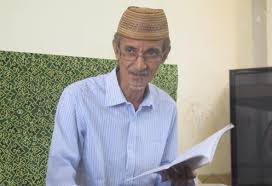 I join Sandra and two feminist scholars who are longtime friends of The Asia Foundation as we board a train to travel to Cireban in West Java.
I join Sandra and two feminist scholars who are longtime friends of The Asia Foundation as we board a train to travel to Cireban in West Java.
Fahmina’s approach is to develop social and religious dialogue on issues such as ending gender based violence and ending human trafficking. When Fahmina witnessed an upsurge in domestic violence its leaders encouraged the establishment of the Women’s Crisis Center.
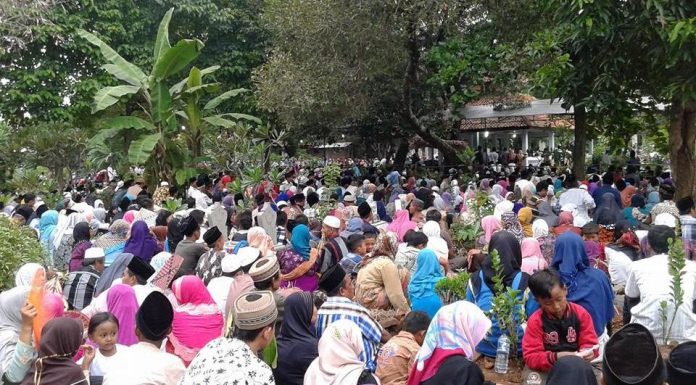
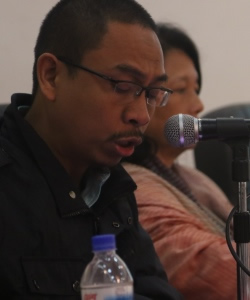 The institute’s four strands of work include interfaith dialogue designed to influence attitudes through a close reading of Islamic texts; a school with an intentional focus on peace and conflict resolution; the institute’s work on reproductive health, and its women’s crisis center.
The institute’s four strands of work include interfaith dialogue designed to influence attitudes through a close reading of Islamic texts; a school with an intentional focus on peace and conflict resolution; the institute’s work on reproductive health, and its women’s crisis center.
Fahmina has a 15-year strategic plan to contribute to a regional conversation in South East Asia (with Malaysia, Philippines, Thailand) and it has maintained a strong relationship with Imams and other religious leaders in Afghanistan, Pakistan and Bangladesh.
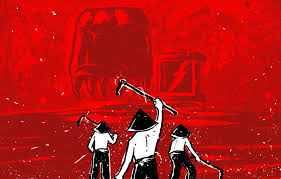 Legal rights, and law of the land, takes on a different meaning in another part of Indonesia, in East Kalimantan. Some of my colleagues in The Asia Foundation’s Jakarta office are working on an environmental governance program called SETAPAK. One of the areas the program is focused on is recognition of forest and land rights for local communities and indigenous peoples. This recognition is also crucial for sustainable forest governance, biodiversity, food security, poverty alleviation and reduction in deforestation, climate vulnerability and land forest conflicts. Local communities and indigenous peoples lay customary claim to most of the forests in Indonesia (and across Asia) however most governments have been slow in acknowledging these claims.
Legal rights, and law of the land, takes on a different meaning in another part of Indonesia, in East Kalimantan. Some of my colleagues in The Asia Foundation’s Jakarta office are working on an environmental governance program called SETAPAK. One of the areas the program is focused on is recognition of forest and land rights for local communities and indigenous peoples. This recognition is also crucial for sustainable forest governance, biodiversity, food security, poverty alleviation and reduction in deforestation, climate vulnerability and land forest conflicts. Local communities and indigenous peoples lay customary claim to most of the forests in Indonesia (and across Asia) however most governments have been slow in acknowledging these claims.
Even in countries which have taken important steps towards recognizing rights of local communities and indigenous peoples, the actual implementation of rights recognition has been difficult and challenging. The Indonesian government has sought to distribute land and forest to marginalized people in and around the forest, through social forestry and agrarian reform programs. In the last six months, the Ministry of Environment and Forestry has provided 202,722 ha of forest to be manged by the 32,561 families, both in the form of village forest, community forest and Customary forest. The SETAPAK program has played a significant role in making this possible.
In East Kalimantan, which is one of Indonesia’s most heavily mined provinces, women who are protesting mining face death threats to themselves and their families. It’s a challenging situation where there is no reclamation of land by mining companies even though children are swimming in contaminated lakes and mud sucks (like quicksand) that have caused 28 children to drown in Kalimantan alone. Citizens have won a lawsuit against government for reclamation of land and a judge ordered the government to comply however implementation of this order is still weak.
I learn during my visit that even in the last few weeks two more young people have drowned. One mother of a child who drowned was offered USD10,000 from the mining company to be quiet but she declined. Her husband wanted her to accept but she said “I didn’t want other children to die because of my silence.” Instead, the mother traveled with her three-year old son to Indonesia to meet with the Minister for Environment and Forestry and to demand action. The government has taken some action, including revoking the permits of 11 mining companies.
SETAPAK partners have been working as a coalition of NGOs to press for improved government regulation of post-mining land reclamation and rehabilitation and the provincial government has now issued a new bylaw on post-mining cleanup in response to this advocacy.
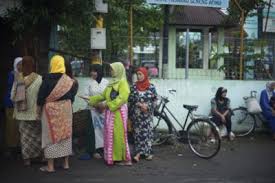 Supporting the rights of marginalized people in Indonesia and elsewhere in Asia is essential if we’re to alleviate poverty, actively affirm dignity and see a transformed world. In this respect, getting more women into political office is essential. The Asia Foundation was part of the movement that helped ensure the adoption of a quota system of 30% women to be nominated for national election.
Supporting the rights of marginalized people in Indonesia and elsewhere in Asia is essential if we’re to alleviate poverty, actively affirm dignity and see a transformed world. In this respect, getting more women into political office is essential. The Asia Foundation was part of the movement that helped ensure the adoption of a quota system of 30% women to be nominated for national election.
For the 2009 national elections in Indonesia, the foundation supported the adaptation of an approach similar to Emily’s List with both party and community service organization lists being used to reach out to potential candidates. It proved an effective means of presenting proposed candidates to political parties. The foundation plans to develop a more comprehensive approach to support more women candidates for the next national elections in 2019.
What’s also important here is a focus on getting more women into provincial level political positions and so the foundation is working with academics and activists to make this possible. Equally important is to diversify the type of women running for national office beyond those who are privileged and who bring this mindset with them into office, so adopting an intersectional approach to this work is critical.
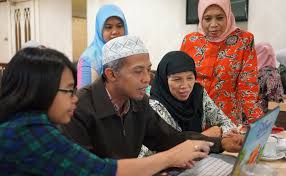 Influencing Indonesia’s political parties to adopt inclusive policies to ensure greater representation of women both within the party system as well as candidates for office is also vital. Tied to this is advocating for increased public funding for political parties in return for an agreement that the parties undertake recruitment based on merit and with the commitment to recruiting talented women and men.
Influencing Indonesia’s political parties to adopt inclusive policies to ensure greater representation of women both within the party system as well as candidates for office is also vital. Tied to this is advocating for increased public funding for political parties in return for an agreement that the parties undertake recruitment based on merit and with the commitment to recruiting talented women and men.
By paying attention to political finance reform to level the political playing field there’s a genuine opportunity for diverse candidates to be elected, including more women. If this level of reform can be achieved, then it will help safeguard Indonesia’s still-young democracy from elite interests.

 Back here in Sausalito I learn that the legendary Record Plant recording studio in Sausalito has been bought to restore it to a recording studio and museum. This is the place where artists including Fleetwood Mac, Stevie Wonder, Prince, the Grateful Dead, Linda Ronstadt and Warren Zevon recorded and participated in a live radio program called ‘Live from the Plant’.
Back here in Sausalito I learn that the legendary Record Plant recording studio in Sausalito has been bought to restore it to a recording studio and museum. This is the place where artists including Fleetwood Mac, Stevie Wonder, Prince, the Grateful Dead, Linda Ronstadt and Warren Zevon recorded and participated in a live radio program called ‘Live from the Plant’.
So, it seems the spirit of the Grateful Dead rises again in Sausalito with this new development. At a recent lunch, I was talking to a woman who works for an organ transplant organization and she told me that organ donations are the highest in the country in Marin County, where I live.
Apparently the theory for why this is the case is that the Grateful Dead’s use of body parts and skeletons in their visual imagery socialized the idea of our body parts being separate from our spirit (musical selves) and made it easier for people to imagine donating their organs to save lives. If it’s true, then it speaks to the power of the arts (and Deadheads) as a potent means for social change and changing norms.
 Something else happened while I was away, too. An independent bookstore called Book Passage opened in Sausalito after our only bookstore closed almost four years ago.
Something else happened while I was away, too. An independent bookstore called Book Passage opened in Sausalito after our only bookstore closed almost four years ago.
I go rushing in with a list of books and the suggestion that they do something like my favorite bookshop in the world, Mr. B’s Emporium of Reading Delights located in Bath in the UK, where they have a book spa, a bibliotherapy room and so much more. There’s a renaissance going on – of books and ideas and movement building and I’m so glad to be part of it.
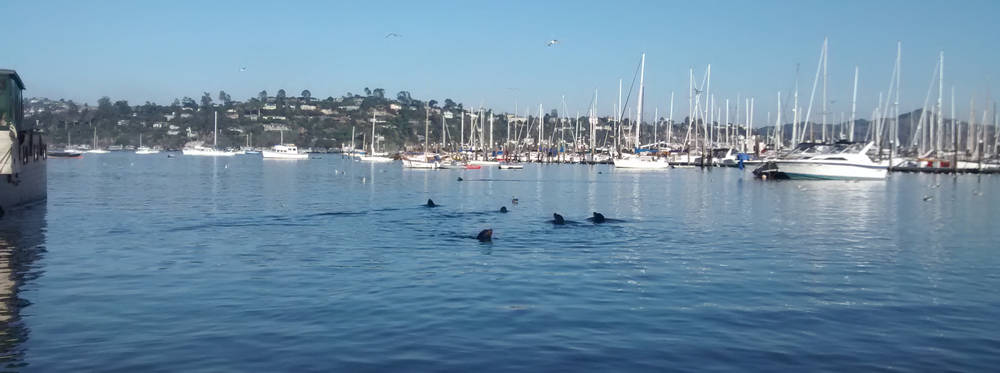
In the morning, I wake to a rosy dawn after a tumbling night on my boat weathering stormy weather and seas. Now the sea is calm again and, as I’m watching the glow of a new day, I see a rumbling in the water and then presto! the face of a sea lion – bright black eyes, whiskery and aware. We look at each other and then, just as suddenly, that face dives deep and I’m left with the buzz of momentary connection.
The now-ness of now evokes e.e. cummings and his leaping greenly spirits and blue true dream of sky (‘and for everything which is natural which is infinite which is yes’). Whatever I experience in my work in the world, my touchstone remains my boat, the natural world and my own continuing songs.
For whatever we lose (like a you or a me) / it’s always ourselves we find in the sea.
~ e. e. cummings
Jane Sloane
San Francisco
https://youtu.be/iNPQx_Bb2Fo